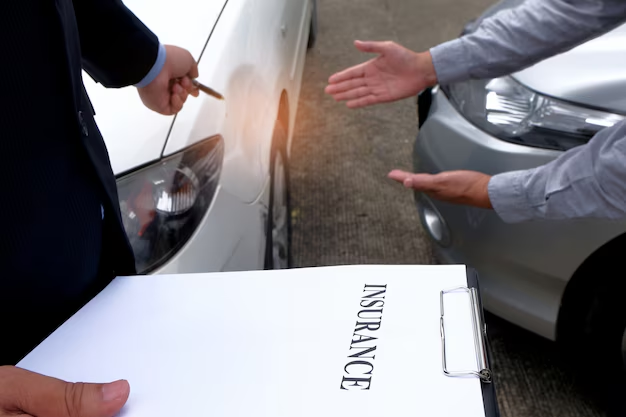Life is unpredictable, and while no one can foresee an accident, we can plan for the financial implications should one occur. Among the many types of insurance available today, accidental death insurance stands out as a crucial, yet often overlooked, option for those seeking additional coverage in the unfortunate event of an accident. This specialized insurance is designed to provide a financial safety net for your loved ones if you pass away due to an accidental injury. In this article, we’ll explore what accidental death insurance is, how it works, why you might need it, and the key features that set it apart from other types of life insurance.
Key Takeaways
- Accidental death insurance provides financial protection for your family in the event of your accidental death or dismemberment.
- It’s typically more affordable than traditional life insurance since it only covers accidents.
- The lump-sum payout can help replace lost income, cover debts, and manage living expenses.
- Accidental death insurance is especially valuable for individuals in high-risk jobs or those who want extra coverage alongside their regular life insurance.
- Be sure to carefully review your policy for exclusions and understand what is covered, including dismemberment or permanent disability benefits.
What Is Accidental Death Insurance?
Accidental death insurance (often referred to as Accidental Death and Dismemberment Insurance, or AD&D) is a type of life insurance policy that provides a lump-sum payment to your beneficiaries in the event of your death resulting from an accident. Unlike traditional life insurance, which may cover death due to any cause, accidental death insurance is specifically focused on covering deaths caused by unexpected or unintentional events, such as car accidents, falls, workplace accidents, or other sudden trauma.
Accidental death insurance may also include coverage for dismemberment (e.g., the loss of a limb or other body parts) or injuries that result in permanent disability, which can provide additional financial support to help the insured or their family cope with the physical and financial challenges of such an injury.
How Does Accidental Death Insurance Work?
The way accidental death insurance works is relatively straightforward. Here’s a step-by-step breakdown of the process:
- Purchasing the Policy: You purchase an accidental death insurance policy from an insurance company. The policy will specify the premium amount (the amount you need to pay regularly) and the coverage amount (the amount your beneficiaries will receive upon your death). The premiums are typically affordable, making this a popular add-on for those seeking additional financial protection.
- Paying Premiums: Similar to other types of insurance, you pay regular premiums (monthly, quarterly, or annually) to maintain your coverage. Premiums tend to be lower than traditional life insurance premiums since the policy only covers deaths resulting from accidents, which statistically occur less frequently than natural deaths.
- Accidental Death or Dismemberment: If you die as a result of an accident, or if you suffer an accident that leads to dismemberment (e.g., the loss of a limb or eyesight), your beneficiaries (or you, if you’re injured) can file a claim with the insurance provider.
- Filing a Claim: To file a claim, your beneficiaries or the insured (in the case of dismemberment) will need to submit the necessary documentation to the insurance company. This often includes an official death certificate or medical records that verify the cause of death or injury as an accident.
- Payout: Once the claim is processed and approved, the insurance company will issue a lump-sum payment to the beneficiaries. The payout amount is typically the face value of the policy, though some policies may include different payout levels depending on the severity of the injury (e.g., partial payout for dismemberment vs. full payout for accidental death).
- Policy Expiry: Once the insurance company has made the payout, the policy ends. Some policies may offer additional options for renewal or may provide benefits for multiple types of coverage, such as critical illness, that might kick in following an accident. However, typically, AD&D policies are not renewable after the payout.
What Does Accidental Death Insurance Cover?

Accidental death insurance specifically covers deaths caused by accidents. The coverage typically includes the following:
- Accidental Death: The primary coverage of an accidental death policy is the death caused by an accident. This could include accidents such as:
- Car accidents
- Falls
- Drowning
- Workplace accidents
- Animal attacks
- Accidents caused by hazardous activities
- Dismemberment: In addition to accidental death, many policies offer dismemberment coverage. This applies if you lose a body part or function as a result of an accident, such as:
- Loss of a limb (arms, legs)
- Loss of eyesight or hearing
- Loss of speech
- Severe facial injuries
- Permanent Disability: Some AD&D policies also offer coverage for permanent disability resulting from an accident. This can include total or partial disability, such as being unable to work or perform daily tasks due to an injury.
- Common Exclusions: While accidental death insurance covers a broad range of accidents, it’s important to note that policies typically have exclusions, including:
- Suicide or self-inflicted injury (in most cases)
- Death or injury caused by illegal activities (e.g., criminal activities)
- Death caused by intoxication (in some policies)
- Death from natural causes (e.g., illness, disease)
Why Do You Need Accidental Death Insurance?
Accidents are a leading cause of death, particularly among younger individuals. According to the Centers for Disease Control and Prevention (CDC), unintentional injuries are the fourth-leading cause of death in the United States, accounting for over 200,000 deaths annually. While life insurance covers death from any cause, accidental death insurance is designed to ensure that your family is financially supported if the worst happens in an unexpected, accidental manner.
Here are some reasons why you may want to consider accidental death insurance:
Supplement to Life Insurance
While traditional life insurance covers death from any cause, it may not be sufficient to cover specific accidental death scenarios. If your primary life insurance policy does not provide adequate coverage for accidents, or if you want additional financial protection, accidental death insurance is a cost-effective option.
Affordable Coverage
Accidental death insurance is often much more affordable than other types of life insurance. The premiums are typically lower because the policy only covers accidental deaths and injuries, which statistically occur less frequently than deaths from natural causes.
Peace of Mind
Accidents can happen at any time, and accidental death insurance provides a financial cushion for your loved ones in the event of an unexpected tragedy. This coverage offers peace of mind, knowing that your family will receive financial support if an accident leads to death or disability.
Financial Support for Family
In the case of accidental death, your family may face a sudden loss of income, along with the emotional trauma of your passing. The lump-sum payout from accidental death insurance helps ensure that your family has the financial resources to cover funeral expenses, daily living costs, and outstanding debts.
Workplace and High-Risk Activities
People who work in high-risk professions or who engage in risky activities (such as construction, transportation, or sports) may be at a higher risk of accidental death. Accidental death insurance can provide added security for individuals in these high-risk categories.
Also Read : What Is Disability Insurance And How Does It Work?
Conclusion
Accidental death insurance is an essential type of insurance that provides a financial safety net in the event of an accident leading to death or permanent disability. It offers a lump-sum payout to help loved ones cope with the financial burden that often accompanies unexpected fatalities. While not a substitute for life insurance, accidental death insurance can serve as a valuable supplement, providing affordable and targeted coverage for those who work in high-risk professions or want additional peace of mind.
If you’re looking for affordable coverage that specifically addresses the financial risks associated with accidents, accidental death insurance may be the right choice for you. By understanding how it works and assessing your individual needs, you can make an informed decision about whether this type of insurance is a good fit for your family’s financial protection.
FAQS
How much coverage do I need for accidental death insurance?
The amount of coverage depends on your lifestyle, income, and financial obligations. As a general rule, you may want to have enough coverage to replace your income for several years and cover any debts, such as a mortgage or loans.
Is accidental death insurance the same as life insurance?
No, accidental death insurance is not the same as life insurance. While life insurance covers death from any cause, accidental death insurance only covers death due to an accident. Life insurance is more comprehensive, while accidental death insurance is more limited in scope.
How much does accidental death insurance cost?
Accidental death insurance is generally more affordable than traditional life insurance, with premiums typically ranging from $10 to $50 per month, depending on the coverage amount, your age, and other factors.
Can I purchase accidental death insurance without life insurance?
Yes, you can purchase accidental death insurance as a standalone policy without having to buy life insurance. However, many people choose to add AD&D coverage as a rider to their life insurance policy for additional protection.
What happens if I survive an accident but am permanently disabled?
If you survive an accident but are left with a permanent disability, accidental death insurance may still provide a payout for certain injuries like the loss of a limb or eyesight. The exact coverage depends on the specific policy terms.
Does accidental death insurance cover deaths caused by alcohol or drugs?
Many policies exclude deaths that are caused by intoxication or drug use. It’s important to read the policy terms carefully to understand the exclusions.
Does accidental death insurance cover natural causes?
No, accidental death insurance only covers deaths caused by accidents. Deaths due to natural causes, such as illness or disease, are not covered under accidental death insurance policies.
